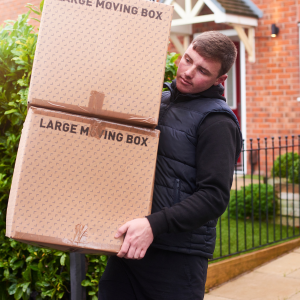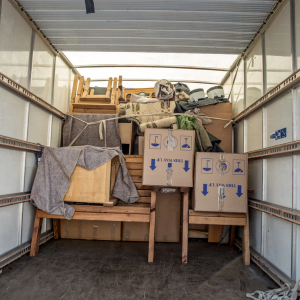|
Removal companies
 So, completion day has arrived. Unless you’ve chosen to move yourself, the first tangible sign that things are really happening is the arrival of the removal van. Its crew are the experts responsible for the daunting task of carefully moving all your worldly goods. But don’t forget, they really do know what they’re doing. Packing, handling, stowing, securing, transporting, and finally, unpacking – they will almost certainly do a far better job of it than you or me! But what should you consider when searching for removal companies?
So, completion day has arrived. Unless you’ve chosen to move yourself, the first tangible sign that things are really happening is the arrival of the removal van. Its crew are the experts responsible for the daunting task of carefully moving all your worldly goods. But don’t forget, they really do know what they’re doing. Packing, handling, stowing, securing, transporting, and finally, unpacking – they will almost certainly do a far better job of it than you or me! But what should you consider when searching for removal companies?
Choosing removal companies
Choosing removal companies invariably comes down to price, recommendation, or a bit of both. Your conveyancing solicitor is always a good source for local recommendations. Alternatively, check out the ‘Find a mover‘ facility on the British Association of Removers website.
In terms of cost, the amount comes down to a number of factors, including:
- the amount of goods for transportation.
- the distance.
- the size of crew required.
- whether or not they will be packing.
When obtaining quotes, a representative should visit your home to get a feel for the job and to discuss your options. Firms offering a quote over the phone should not inspire confidence! No matter how strong your powers of description, nothing beats seeing potential issues such as:
- tight or restricted access, or
- the quantity and nature of your belongings.
 Greater awareness means better planning and, therefore, a greater likelihood of everything running smoothly on moving day.
Greater awareness means better planning and, therefore, a greater likelihood of everything running smoothly on moving day.
It’s also important to highlight any potential issues they might encounter on arrival at your new property. The representative will confirm whether you should contact the council about parking restrictions at either or both ends of the move.
Good removal companies will highlight ways of keeping costs down, typically by sourcing your own packing materials and/or undertaking some or all of the packing yourself.
If you’re moving a considerable distance, consider obtaining at least one quote from a firm in the area you are moving to. Prices there may be more competitive. Always obtain at least two, and preferably three, quotes, and request a breakdown for easier comparison between items such as:
- packing costs;
- insurance;
- mileage rate; and
- any storage costs.
Be aware that some firms apply overtime rates. If so, when do they kick in?
Do not forget your loft and garage
Although they should form a standard part of the discussion, do not forget to show the representative the contents of your loft, garage, shed and any other outbuildings. After all, we all know just how much junk accumulates there!
Removals insurance
 Removal companies carry insurance, but always check that the level of indemnity is sufficient for your possessions. Is it sufficient to cover your high-value items, and do they require special packaging? Liability may be limited to a certain amount per box unless you inform them of the value of its contents. Of course, this may raise the price of your quote, but you should balance that against the cost of any potential damage. Also, what is the time limit for making a claim under their policy?
Removal companies carry insurance, but always check that the level of indemnity is sufficient for your possessions. Is it sufficient to cover your high-value items, and do they require special packaging? Liability may be limited to a certain amount per box unless you inform them of the value of its contents. Of course, this may raise the price of your quote, but you should balance that against the cost of any potential damage. Also, what is the time limit for making a claim under their policy?
While you may opt to undertake some of the packing yourself to reduce costs, be aware that, typically, removal companies’ insurance policies do not cover items packed by you. So, at the very least, allow them to pack your breakables.
Always anticipate the worst. What happens if conveyancing completion is delayed or the move cannot proceed on the chosen day for any other reason? This is an issue removal companies will invariably have encountered before, and they should have contingency plans.
Briefing sheets
Providing a briefing sheet to your chosen removal company before moving day is very helpful. Keep the format simple and easy to follow, highlighting in particular:
- items you are moving yourself.
- any awkward, delicate, or difficult to move items.
- anything requiring special packing, eg pictures, antiques, or other valuables.
- any furniture that requires dismantling.
- any curtains and carpets going with you.
Also include a floor plan of your new property, indicating what is going where on arrival.

 Residential property specialist
Residential property specialist